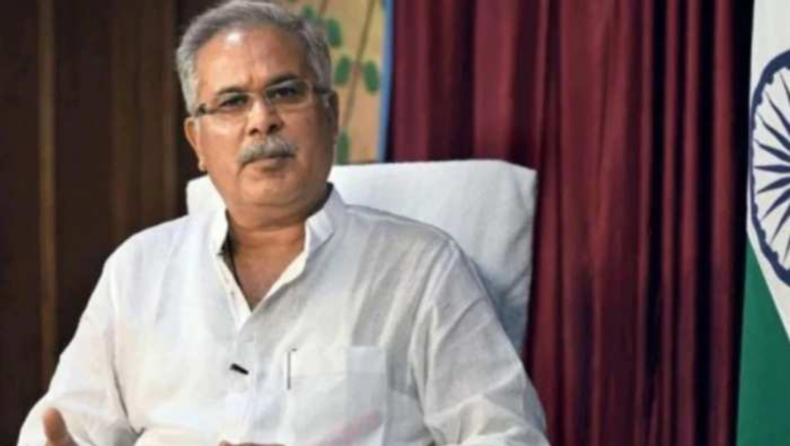Chhattisgarh CM talked about the Chhattisgarh model and various schemes launched under the government, comparing it with the Gujarat model.
Bhupesh Baghel, the chief minister of Chhattisgarh, asserted on Saturday that the country’s assets were being sold off one by one, which has caused a surge in poverty and unemployment.
In a subtle jab at the Bharatiya Janata Party (BJP), he claimed that the Gujarat model of development, which was much discussed across the nation prior to the 2014 general elections, has since disappeared.
The Chhattisgarh Congress government is focused on providing a minimum income to people and meeting their basic requirements, Chief Minister Baghel said while speaking at the AIPC’s (All India Professionals’ Congress) 5th national conclave, a branch of the Congress.
According to Baghel, the people are bearing the brunt of the Gujarat model as all the assets of the country are being sold one by one, leading to an increase in unemployment, poverty, and malnutrition. He added that a few years ago, ahead of the 2014 Lok Sabha elections, there was much talk about the Gujarat model, but no one talks about it now.
Key schemes launched
Rahul Gandhi discussed the Nyay Scheme in 2018, which stipulated that everyone should receive a basic income, where he mentioned Rs. 72,000 for each family in a year during the 2019 elections. However, according to Baghel, during the elections, people turned their attention away from it and onto emotional concerns, so even the scheme’s discussion did not reach the people.
Minimal needs and the minimum income were priorities for the Chhattisgarh government. The two differ slightly from one another. He added that people spend money as consumers if it is put in their pockets. The market can be strengthened, but people cannot become more economically empowered. In the state, they concentrated on meeting people’s basic necessities, including food, housing, education, employment, and entrepreneurship.
According to him, the government waived farm loans in the state and provided Rs 9,000 per acre under the Rajiv Gandhi Kisan Nyay Yojna.
He also discussed the Narva-Garva-Ghurva-Bari programme of his government (rivulet, cow, compost pit, vegetable garden). Despite mocking from the BJP for procuring cow dung, according to him, the plan has improved the rural economy while also making cattle-rearing commercially profitable. Both producers and consumers are being created in the villages. He claimed that the Chhattisgarh model links people with work, education, and healthcare services.
Later, when speaking with reporters, Baghel stated that while the Gujarat model may involve selling the nation’s wealth, the Chhattisgarh model involves providing jobs for everyone.
Shashi Tharoor’s speech at the conclave
Shashi Tharoor, head of the AIPC and a Congressman, spoke at the event, saying that the party had always believed in bringing everyone together and the advancement of all facets of society. He added that the values of the Congress include those of an inclusive India. An India that views us all as one and looks past differences in caste, creed, religion, caste, and language. India is a country where you should look behind the lines dividing the rich from the poor, Dalits from Brahmins, etc. Some politicians emphasise these problems in an effort to polarise electorates.
He asserted that Congress stood for bringing everyone together and forward, adding that Congress has always believed, even in the significant economic liberalisation that occurred in the 1990s. Their policy clearly favoured liberalisation and opening up. According to him, even if the rich get richer, the poor must also benefit in the process through redistribution of the revenues that come to their government from the new liberalised economy.
He noted that Bhupesh Baghel has been carrying out the same in Chhattisgarh with his Nyay programme with support for farmers and is trying to spread the system to weaker sectors of the society so they, too, can be big participants in the adventure of progress and development in India.
The former Reserve Bank of India (RBI) governor, Raghuram Rajan, is one of the main speakers at the two-day conclave, which got underway on Saturday at the Pt. Deendayal Upadhyay Auditorium.













